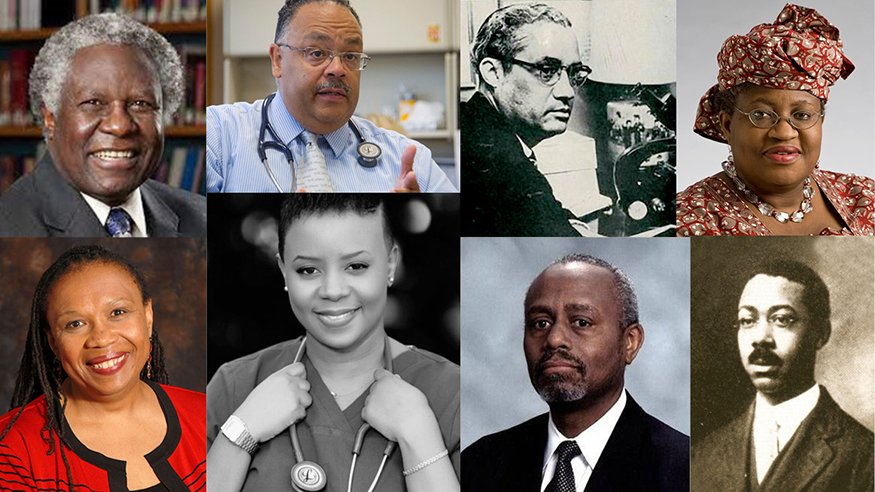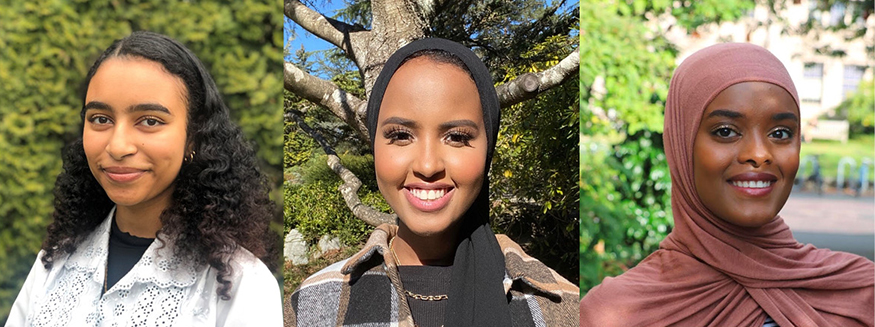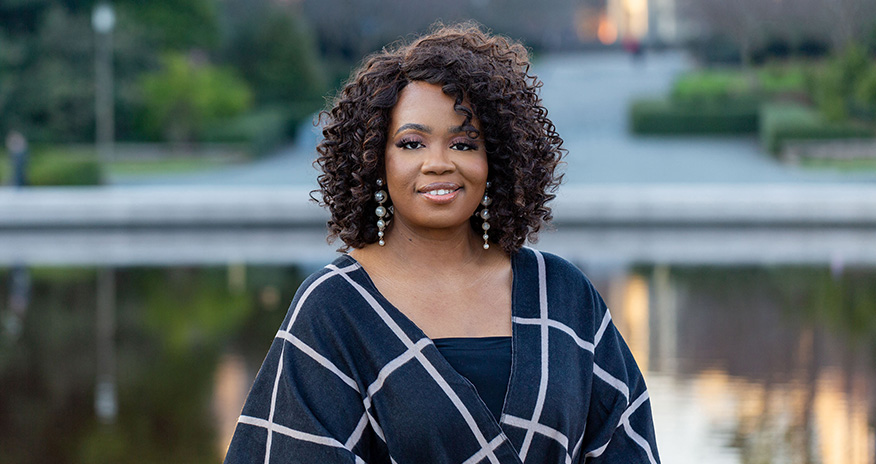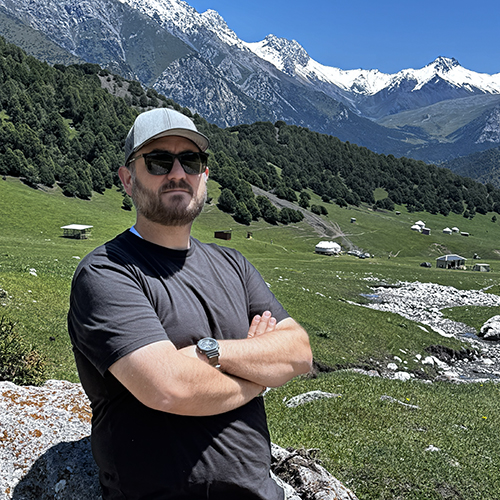
William Augustus Hinton, born to former slaves, was a bacteriologist and the first Black professor at Harvard. Sekazi Mtingwa, a theoretical high-energy physicist, co-founded the National Society of Black Physicists. Claire Karekezi is the first and only female neurosurgeon in Rwanda. These and other Black leaders in the sciences are featured on BlackPast.org, thanks to the UW BlackPast-PR2ISM Science Communication Internship.
BlackPast.org is an online resource for Black history, viewed by more than six million people annually. Developed by Quintard Taylor, UW professor emeritus of history, it is by far the largest and most visited website on African American and global African history.
Despite BlackPast’s breadth and reach, Tam’ra-Kay Francis wished its coverage of Black scientists could be more robust. Francis, a postdoctoral fellow in the UW Department of Chemistry, had previously created PR2ISM — a tri-campus initiative to foster diverse careers in STEM. She reached out to Taylor, suggesting a BlackPast-PR2ISM internship to add more STEM content to the BlackPast site.
“BlackPast has had a STEM page for some time, but we were running short of volunteers to write entries on the numerous people who should have been added,” recalls Taylor. “So when Dr. TK Francis approached me about creating an internship opportunity for students to write for the website, naturally I jumped at the opportunity.”
With Taylor’s encouragement, Francis secured funding from the University of Washington Black Opportunity Fund to develop the BlackPast-PR2ISM Science Communication Internship in 2021. Through the internship, UW students create entries about Black scientists for the BlackPast website while building communication skills. They receive a stipend along with mentorship from Francis and Taylor. (The interns also have written content for the site’s Environmental Justice page, as well as non-science entries, including the new Blackpast.org African American Visual History Timeline.) Three interns were funded in the program’s first year.
A Healing and Transformative Experience
For Sumaya Addish, a UW sophomore majoring in biochemistry, the internship was a perfect fit. “Besides loving science, I have loved to write since I was a little girl,” Addish says. “This internship allowed me to combine two things that I hold dearly to my heart.”
Addish has written more than a dozen entries for BlackPast. In addition to developing her writing and researching skills, the experience has inspired her as a Black student planning for a career in the sciences.

“I have often felt alone in my journey as a Black science student,” she admits, “but I have found a plethora of role models through my work with BlackPast. Knowing that these people are out there, doing incredible things, I am reassured. It helps me reaffirm that I am in the right place.”
Intern Sundus Ahmed (BA, 2021, International Studies) was similarly reassured. As the child of immigrants from Somalia, writing about the accomplishments of Black individuals has been powerful.
“When we think about Black history, we mostly think about slavery and colonialism. We don’t really think about it beyond that,” Ahmed says. “But within the chaos, there’s a beautiful past and an equally beautiful present. Seeing how resilient Black people have been globally, and how they created the very path I walk on today — and then contributing to that by writing about it — has been a healing and transformative experience for me.”
The Power of Mentorship
To expand BlackPast’s content about Black scientists, the interns tapped a variety of sources, including a recently published list of 1000 Inspiring Black Scientists in America (which features seven UW scientists, including Francis). The interns could choose any scientists that piqued their interest, searching for more information online, on video, and in print. Then came the challenge of condensing the entries to 500 words or less.
Throughout the process, the interns received guidance from mentors Francis and Taylor. Francis helped the students finalize topics and plan their research. Taylor suggested content edits to fit BlackPast’s editorial style.
I have often felt alone in my journey as a Black science student, but I have found a plethora of role models through my work with BlackPast. Knowing that these people are out there, doing incredible things, I am reassured.
For intern Zeytun Ahmed, a UW senior majoring in international studies and Korean studies, the opportunity to be mentored by two Black academics was no small thing. Since moving to the U.S. from Kenya in 2007, she has had no Black teachers, with the exception of a teaching assistant in one UW course.
“Getting to know people in academia who look like me has been really, really empowering for me personally,” Ahmed says. “And BlackPast was a resource I was already using as a student, so it felt really good to contribute in this way. This project has motivated me to also learn about other parts of my identity — for example how Muslim scientists and mathematicians have influenced our lives.”
Room to Grow
Although the main focus of the internship was writing for BlackPast, the funding also allowed each intern to attend a professional conference if desired. Francis felt it was important to advocate for the professional development of BlackPast interns. Addish was able to attend two national STEM conferences and presented her summer research on blood vessel regeneration.
All three interns benefitted from Francis’s career guidance. Addish describes Francis as a “beacon of light;” Sundus Ahmed calls her a guiding force. “Even now she still inquires about how I’m doing and provides me with information about different opportunities,” Ahmed says of Francis. “She’s a wealth of knowledge. I’m forever grateful to her and to Quintard Taylor.”

For their part, Francis and Taylor have been thrilled with the students’ work for BlackPast. This year the internship will expand to six students, with more flexibility in the content to be covered. And Francis is already thinking further down the road.
“Money for these internships can only last so long, so I’ve been brainstorming with others at the UW about how and where this project can continue beyond that,” Francis says. “As a STEM educator, I think it is important that every student has access to an experience like this. It is imperative to have more and earlier opportunities to develop, practice and sustain their communication skills. In the case of students in STEM, this will prepare them to speak with other scientists, policymakers, funding agencies, and the general public.”
Addish agrees. She has continued to write for BlackPast, now as a volunteer.
“I’ve continued because I see value in the initiative,” Addish says. “We have witnessed the erasure of Black faces in history time and time again, and BlackPast is working to reverse those effects. I think of myself as a raindrop in an immense downpour of reclamation of colonized history. It is so exciting to be part of something much larger than myself.”
Visit the BlackPast website, or go directly to stories written by Sumaya Addish, Sundus Ahmed, and Zeytun Ahmed.
UW graduate students interested in serving as internship mentors this year can email uwartsci@uw.edu for more information about the program.
More Stories

AI in the Classroom? For Faculty, It's Complicated
Three College of Arts & Sciences professors discuss the impact of AI on their teaching and on student learning. The consensus? It’s complicated.

What Students Really Think about AI
Arts & Sciences weigh in on their own use of AI and what they see as the benefits and drawbacks of AI use in undergraduate education more broadly.

Through Soil Science, an Adventure in Kyrgyzstan
Chemistry PhD alum Jonathan Cox spent most of 2025 in Kyrgyzstan, helping farmers improve their soil—and their crops—through soil testing.
